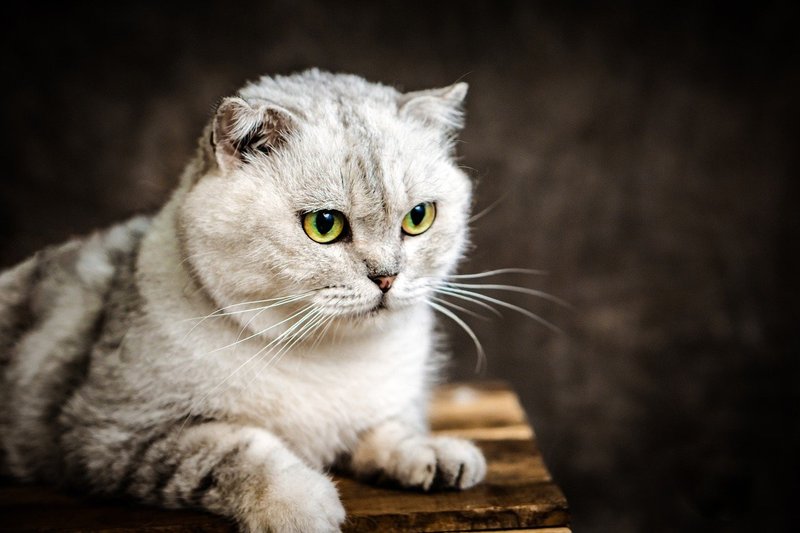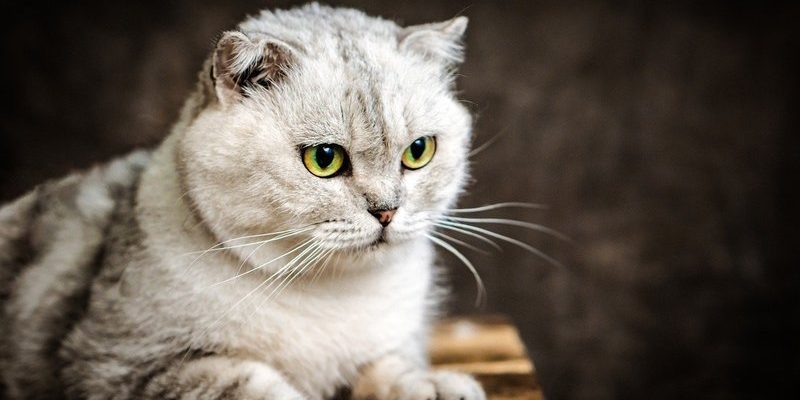
So, if you’re a proud owner or thinking about adopting a Scottish Fold, let’s dive into some common health issues you might encounter. I’ll share tips on how to prevent these concerns, making your cat’s life as comfortable as possible. Like a trusty map guiding you through a new city, this knowledge will help you navigate your pet’s health needs.
1. Genetic Issues Related to Ear Fold
One of the most notable features of Scottish Folds is their adorable folded ears. Unfortunately, this unique trait is tied to a genetic mutation that can lead to several health issues. The cartilage that causes the ears to fold can also impact other parts of their body. As a result, some Scottish Folds may experience problems, particularly with their bones and joints.
Here’s the thing: these genetic issues can manifest in a few different ways. Some cats might show signs of joint pain or stiffness, particularly as they age. If you notice your cat struggling to jump or play, it’s worth a trip to the vet. Regular check-ups can help catch any potential problems early, allowing for treatment options before issues escalate.
To help prevent severe complications, consider asking your vet about genetic testing. Knowing whether your cat carries the gene for common ailments can help you make informed decisions about their health care and breeding.
2. Osteochondrodysplasia: A Bone Condition
Osteochondrodysplasia sounds pretty intimidating, right? But let’s break it down. This condition is another result of that same genetic mutation linked to the Scottish Fold’s ears. It affects the cartilage and bone development in these cats, leading to painful conditions such as arthritis or joint deformities.
Imagine trying to walk on a rocky path with shoes that don’t fit properly—frustrating, isn’t it? That’s how your Scottish Fold might feel with osteochondrodysplasia. Treatment usually involves managing the pain and ensuring your cat maintains a healthy weight to reduce stress on their joints.
To help prevent this issue, keeping your cat active and engaged is essential. Regular exercise—whether through play or designated time outside—will help strengthen their bones and joints. It’s a two-way street: you get to bond with your kitty while keeping them healthy!
3. Heart Disease in Scottish Folds
You might be surprised to learn that Scottish Folds are also prone to certain heart conditions, like hypertrophic cardiomyopathy (HCM). This is a condition where the heart muscle thickens, making it harder for the heart to function efficiently. Early detection is crucial since HCM can progress without showing obvious symptoms.
Here’s a relatable scenario: think of your cat’s heart like a car engine. If something’s off under the hood, it might run fine for a while, but it could ultimately lead to serious issues. Regular veterinary check-ups can help catch heart problems earlier, so don’t skip those routine visits!
As for prevention, feeding your cat a balanced diet and keeping them at a healthy weight can make a big difference. Obesity can strain their heart even more, so watch how much they eat and encourage movement through play!
4. Dental Problems
Like humans, cats can experience dental issues, and Scottish Folds are no exception. They commonly face problems like periodontal disease or tooth decay, especially if their dental hygiene isn’t kept in check. You might be wondering how a cat can develop dental issues—after all, they don’t have candy bars like we do!
The truth is, tartar can build up on your cat’s teeth over time, leading to gum disease. Daily brushing isn’t always practical, but there are cat-friendly dental treats and toys that can help keep their teeth cleaner. Think of these as “toothbrushes” that double as fun playtime!
Regular vet visits are also essential for catching dental problems early. By staying proactive, you can help your Scottish Fold maintain a healthy smile and avoid painful dental procedures down the line.
5. Obesity and Its Risks
Obesity is one health concern that affects many cat breeds, and Scottish Folds are no different. With their gentle dispositions and love for lounging, they can easily gain weight. Just like humans, carrying extra pounds can lead to various health issues, including diabetes and joint problems.
Picture yourself trying to climb stairs while carrying heavy bags—difficult, right? That’s how your cat might feel when they’re overweight. To prevent obesity in your Scottish Fold, try establishing a routine with portion-controlled meals and interactive playtime to keep them active.
It can be fun to mix it up! Use different toys or games every few days to keep your cat engaged and encourage movement. Even simple things like using a laser pointer can get them moving and excited!
6. Allergies in Scottish Folds
Allergies can be a sneaky problem for Scottish Folds. They might react to various things, such as food, pollen, or dust. Symptoms can include itching, sneezing, and digestive upset. If your furry friend seems uncomfortable, it’s crucial to get to the root of the problem.
Think of allergies like a puzzle. You’ve got all these pieces (symptoms) that don’t make sense until someone helps you put them together. A vet visit can help identify whether it’s a food allergy or something in their environment causing the issue.
Once you know the cause, you can work on avoiding those triggers. It might mean switching to a different food or cleaning your home more frequently. Keeping your Scottish Fold comfy and irritation-free is worth the effort!
7. Regular Vet Visits: The Best Prevention
At the end of the day, the best way to keep your Scottish Fold healthy is through regular vet visits. Think of your veterinarian as your cat’s health coach. They can spot issues before they become serious and guide you on the best practices for your furry friend’s wellbeing.
These visits will typically include check-ups, vaccinations, and discussions about diet and lifestyle. Regular consultations allow you to stay informed about your cat’s health needs and preventive care options.
So, don’t skip that vet appointment! Keeping a consistent schedule not only helps with early detection of health issues but also ensures your Scottish Fold lives their best life possible.
In conclusion, while Scottish Folds have their share of health concerns, staying informed and proactive can help mitigate these risks. By understanding common health issues, encouraging a healthy lifestyle, and committing to regular vet visits, you can provide a loving and supportive environment for your feline companion. Together, you’ll navigate the joys and challenges of cat parenthood, keeping your Scottish Fold happy and healthy for years to come!

